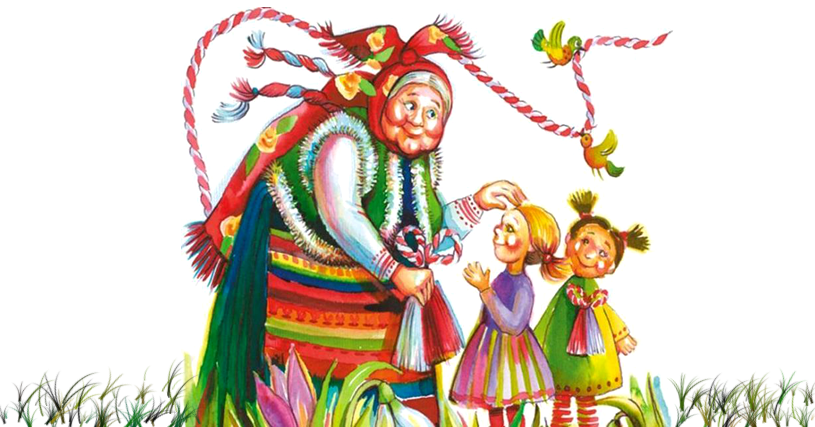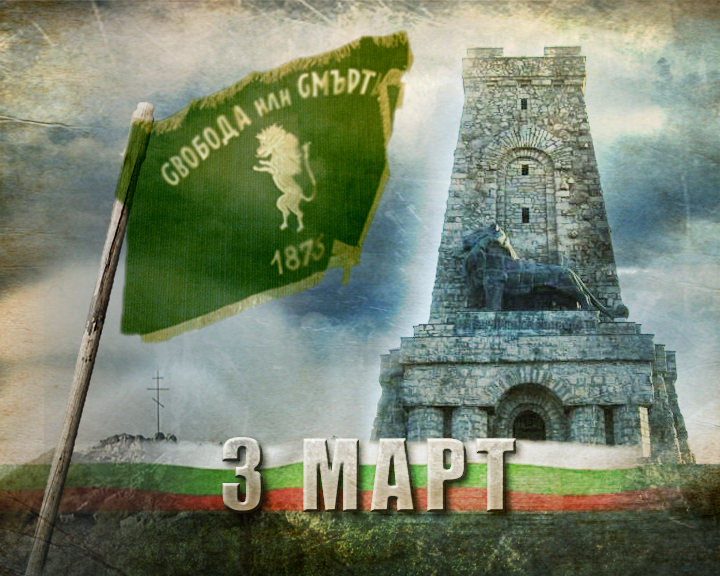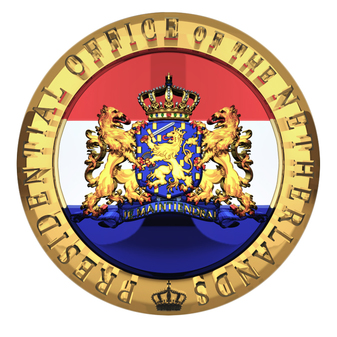[CP] A message from Bulgarian Ambassador
 •
by
•
by Het Catshuis



Greetings citizens of the eNetherlands,
below, we publish an article, sent to us by Bulgarian Minister of Foreign Affairs, and ambassador to our nation, DontPanicPls.

Hello everyone,
I am the new ambassador of eBulgaria in eNetherlands. I am super happy to be with you and I hope I will be able to help you grow and develop. I am also the current MOFA of eBulgaria.
So I want to explain you why March is such an important month for us (thank you wikipedia).

Baba Marta ("Grandma March") is believed to be a feisty lady who always seems to be grudging at her two brothers, January and February, while the sun only comes out when she smiles. As folklore there are different versions of the Baba Marta tale. One says that on that day she does her pre-spring cleaning and shakes her mattress for the last time before the next winter - all the feathers that come out of it pour on Earth like snow - the last snow of the year. This story can also be found in German folklore, for instance in the "Frau Holle" or Mother Hulda legend.

Martenitsi are red and white colored bands or figurines that symbolize health and happiness, a lucky charm against evil spirits. They are given away to friends and family and are worn around the wrist or on clothes. In the small villages in the mountains people decorate their houses, kids and domestic animals.
The white color first symbolized man, the power light solar zone. Later, under the influence of Christian mythology it began to indicate integrity and virginity – white is the color of Christ. Red represents the woman and health: it is a sign of blood, conception and birth. In ancient times women’s wedding dresses were red. The martenitsa comes in all shapes and sizes - from building packages to strings on a newborn's arm. Children usually compete who will get the most.
People wear martenitsa for a certain period, the end of which usually is connected with the first signs of spring -bird storks. Some people then tie their martenitsa to a tree, others place it under a rock and based on what they find there the next morning guess what kind of a year this one would be.
Now you need to say - ЧЕСТИТА БАБА МАРТА

Bulgarian Liberation Day!
This public holiday in Bulgaria is always celebrated on March 3rd. The full title of the holiday is the Bulgarian Day of Liberation from the Ottoman Domination.
This holiday is Bulgaria's national day and honours the Bulgarian volunteers who, during the Russo-Turkish War of 1877-1878 with the assistance of Russian and Romanian forces, liberated Bulgaria from almost 500 years of Ottoman rule.
History of Bulgarian Liberation Day
The date of March 3rd marks the date of the signing the Treaty of San Stefano in 1878.
This peace treaty ended the war and was signed between Russia and the Ottoman Empire, which proclaimed Bulgaria as an independent state, albeit a vassal state within the Ottoman Empire.
Bulgaria had become part of the Ottoman Empire in 1396. In the late nineteenth century, a growing tide of nationalism had been spreading across Europe, which had been threatening the break up of the western parts of the Ottoman Empire.
In April 1876, uprisings in other parts of the Ottoman Empire spread to Bulgaria. The suppression of the revolts by the Ottomans was horrific and when the atrocities were made public to the West and Russia, international condemnation was widespread. On April 24th 1877, Russia formally declared war on the Ottoman Empire.
How is Bulgarian Liberation Day celebrated?
This holiday is a welcome holiday at the start of spring and is traditionally marked by ceremonies across Bulgaria, particularly in those towns and cities which saw the fiercest fighting in the war.
Shipka Pass in the Balkan Mountains is at the centre of celebrations marking the key battle that took place there. In Sofia, there will be church services, wreath-laying and a military march to honour those who gave their lives in the war.

In Sofia, following a Holy Mass at 10 am at Alexander Nevsky Cathedral Church, a memorial and thanksgiving service is held in honour of the National Holiday. The official ceremony of raising the national flag and a solemn ceremony of laying wreaths and flowers then takes place at the Monument to the Unknown Soldier at 11 am.
March 3rd became Bulgaria's Liberation Day in 1888, though it took until 1978 before it gained its National Day of Bulgaria status and was formally decreed as an official holiday in 1990.


Janty F
The concerned Country President of eNetherlands


Comments
Hail BG, NL Friendship!
It is alwas good to learn more about our friends and allies 🙂 !
Very nice article, lot of interesting stuff.
Also warm welcome!
EBG
o7
О7
Alexander Nevsky Cathedral Church (and Sofia in general), one of the highlights of Eastern Europe 😍😍
Interesting read, be sure to stay in touch! o7
Although late Happy Bulgaria Day!
o/
Great article.
o7
Good stuff, thanks! And happy springtime.